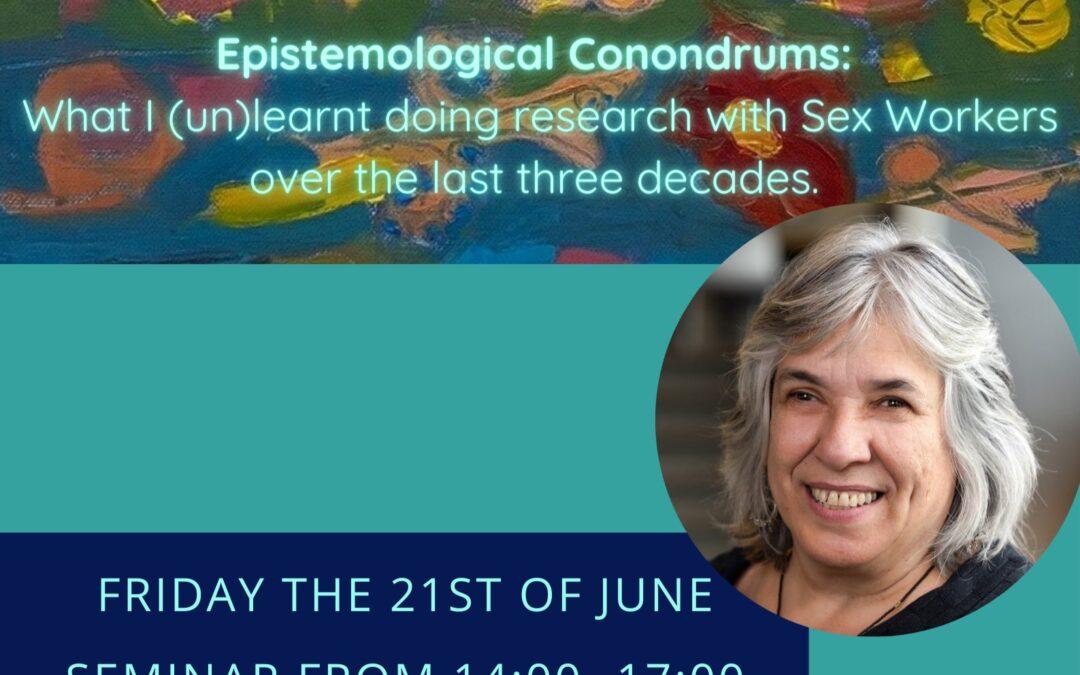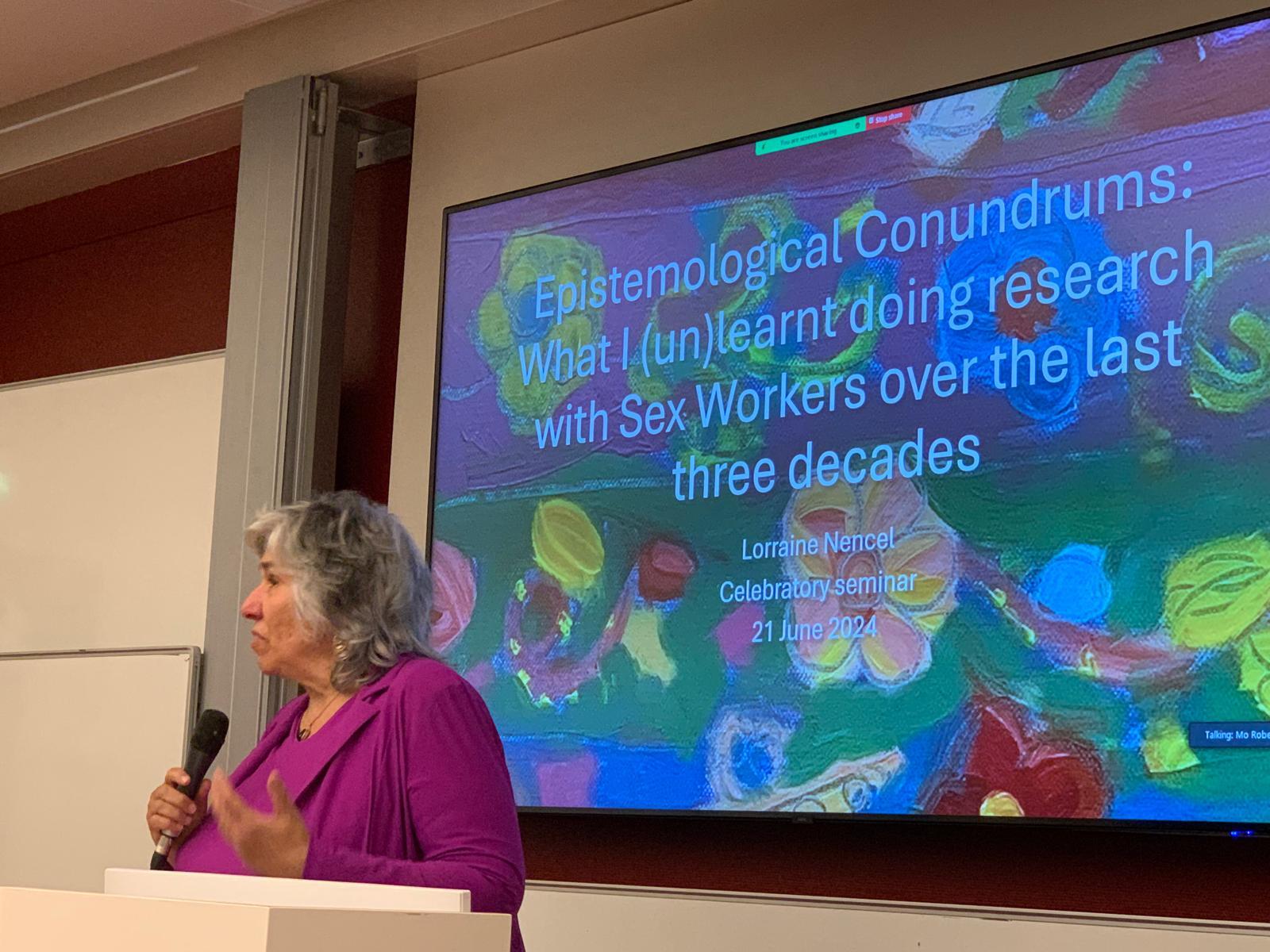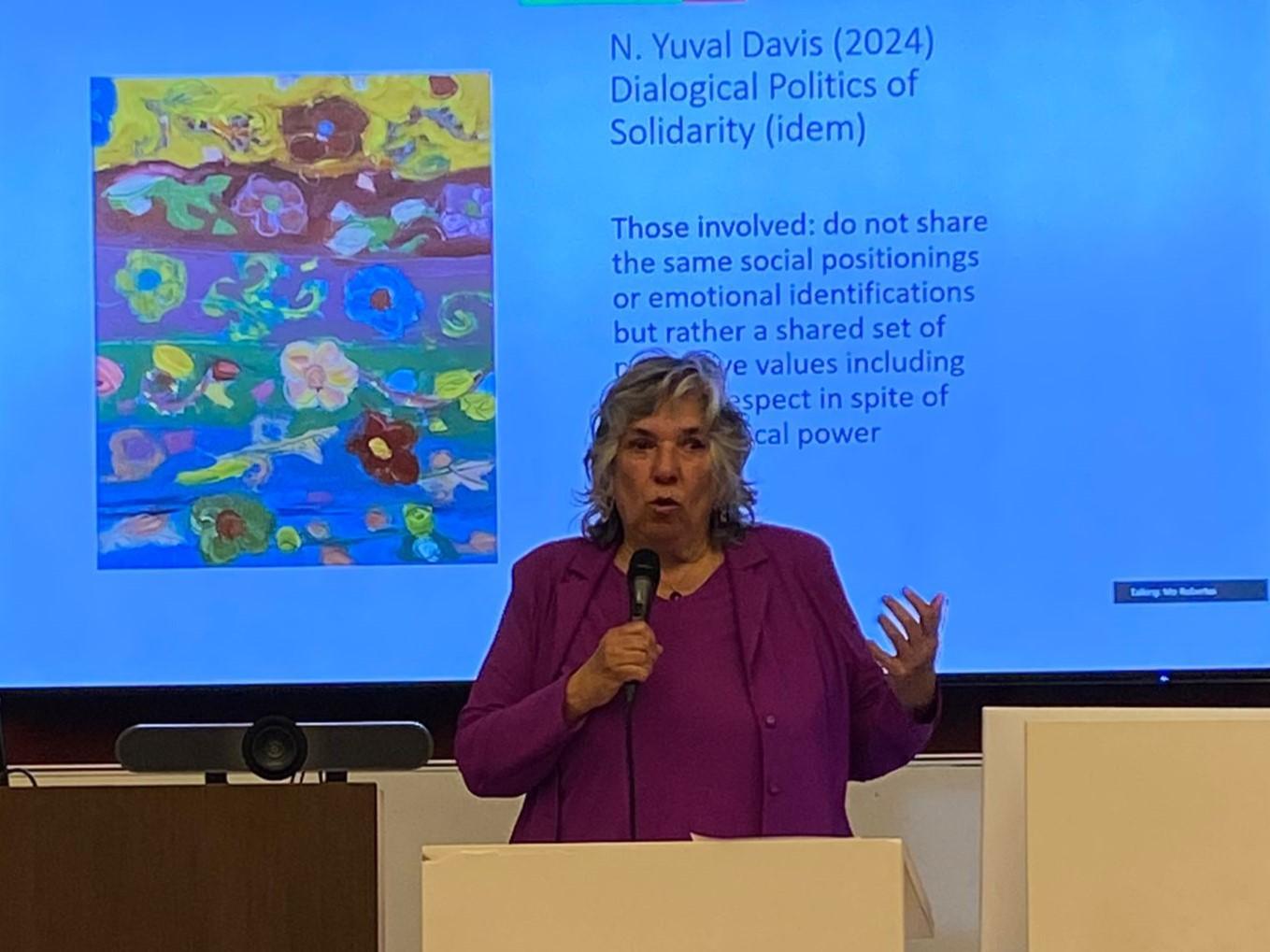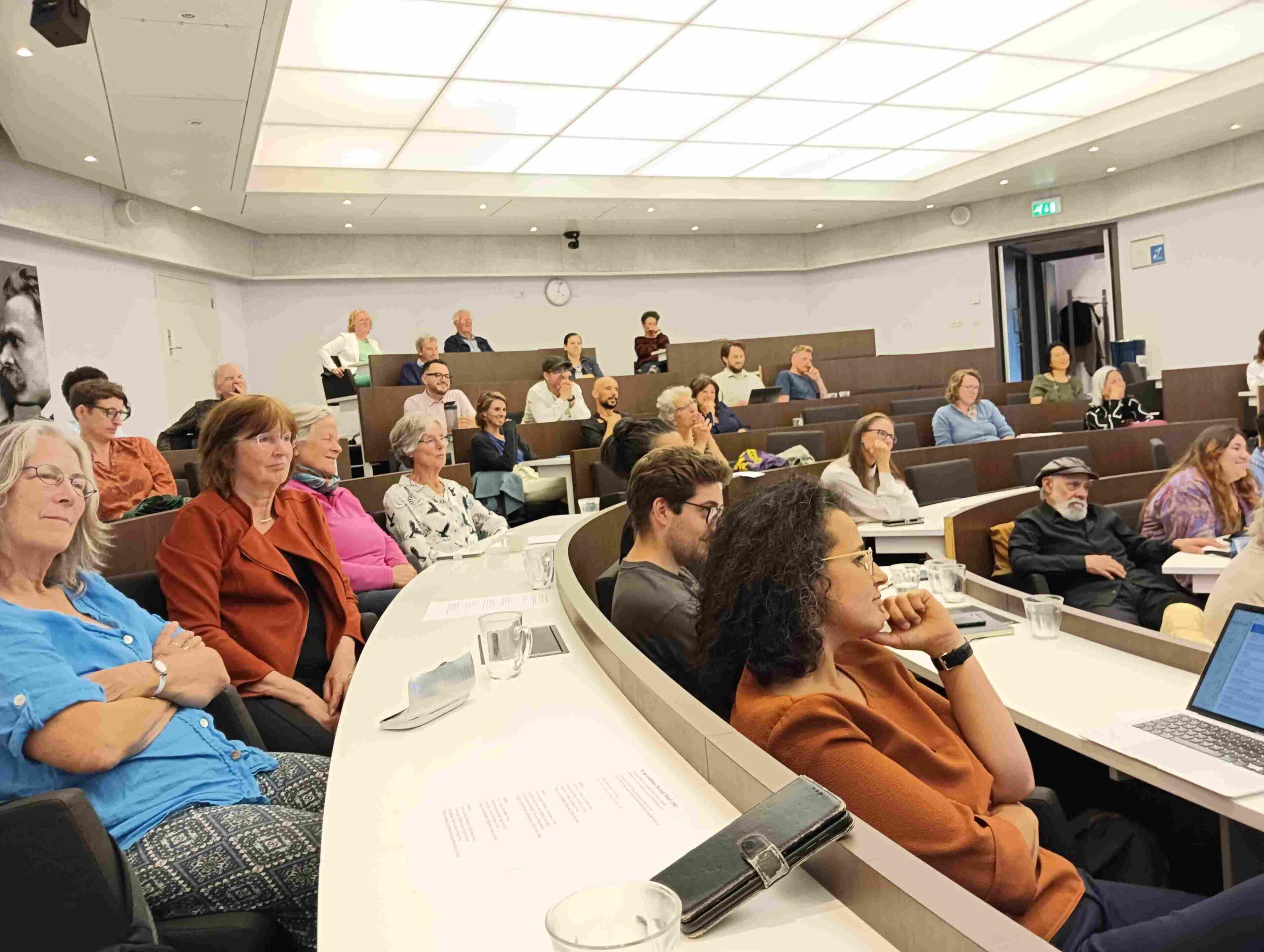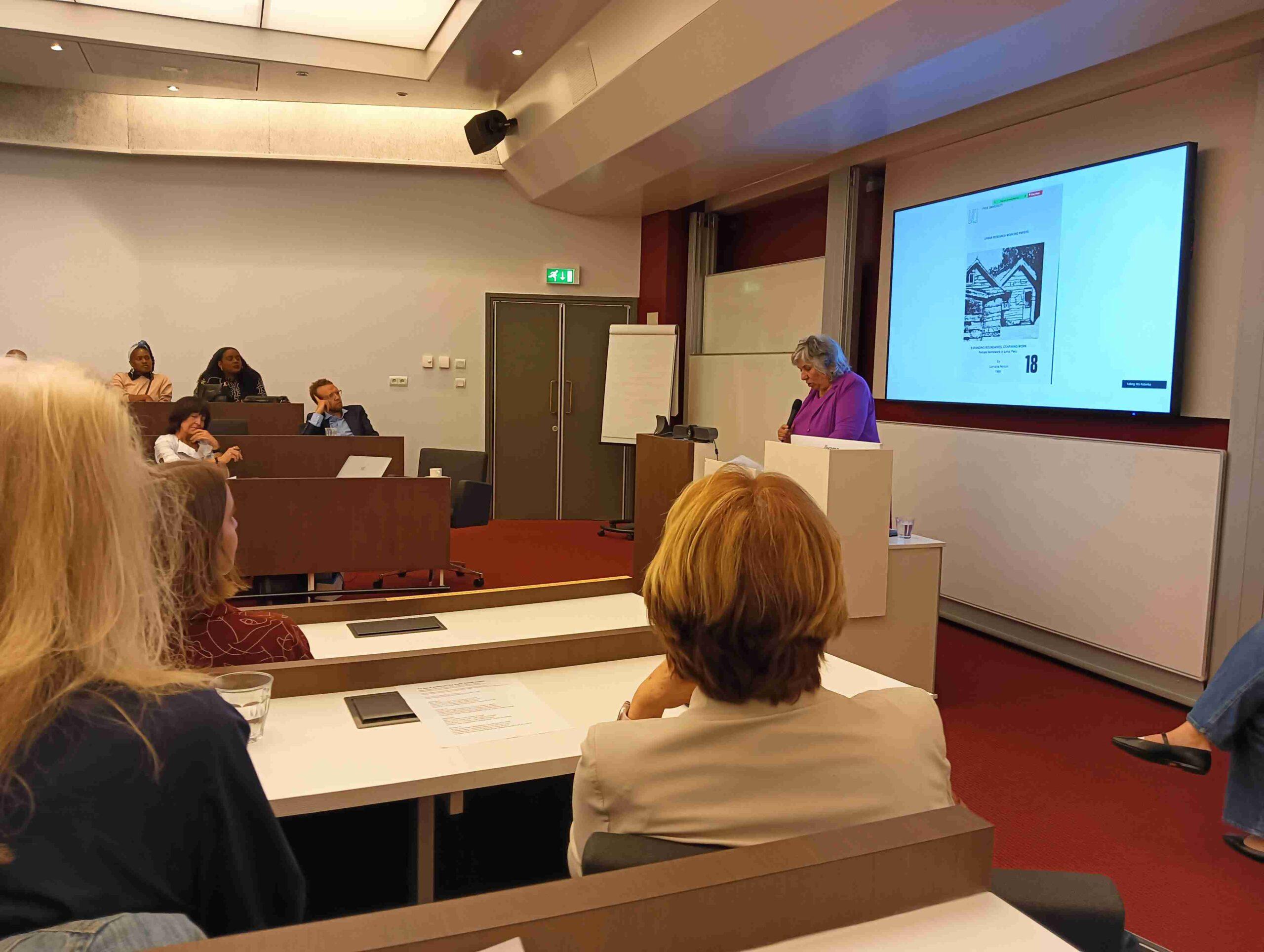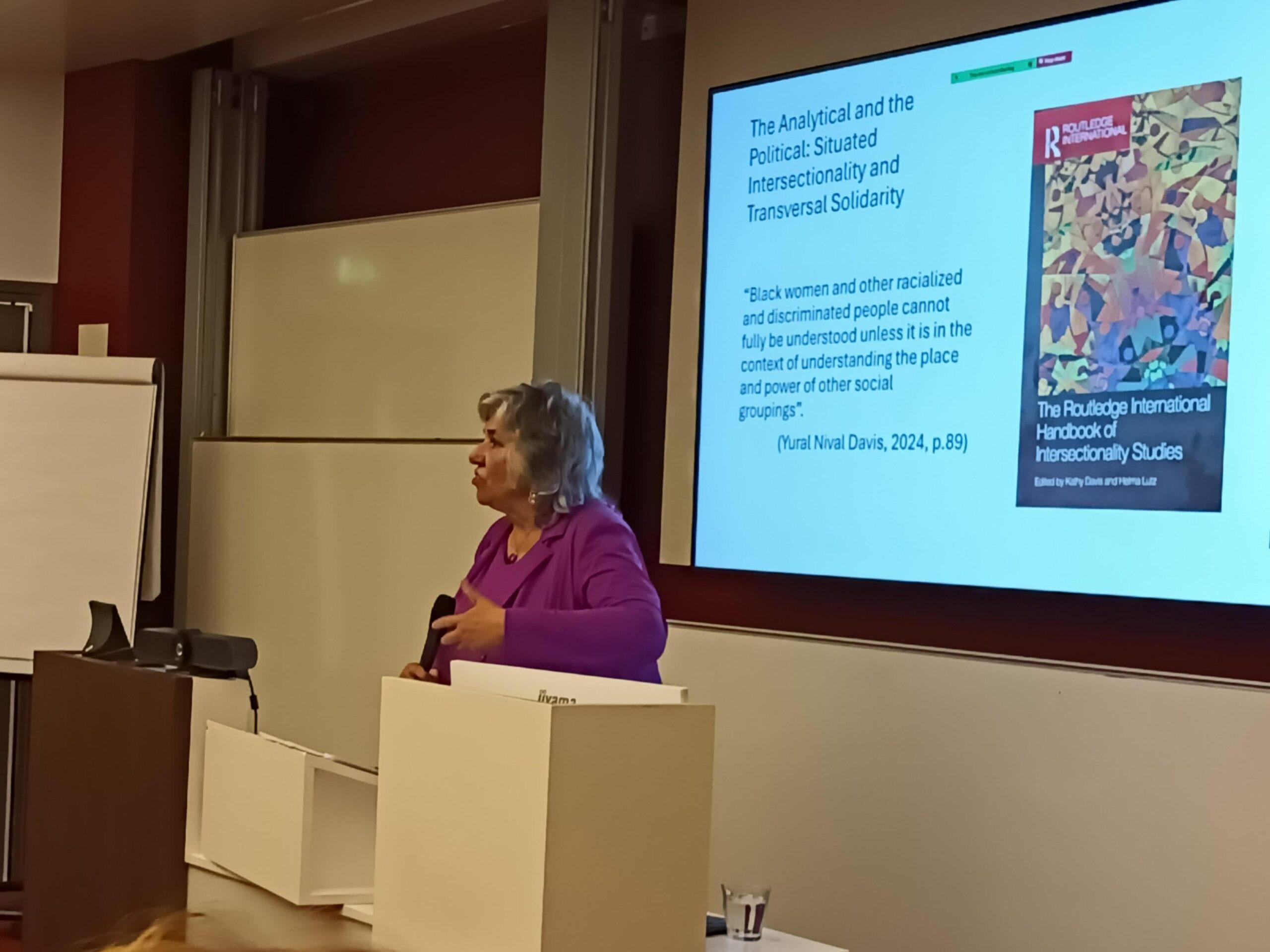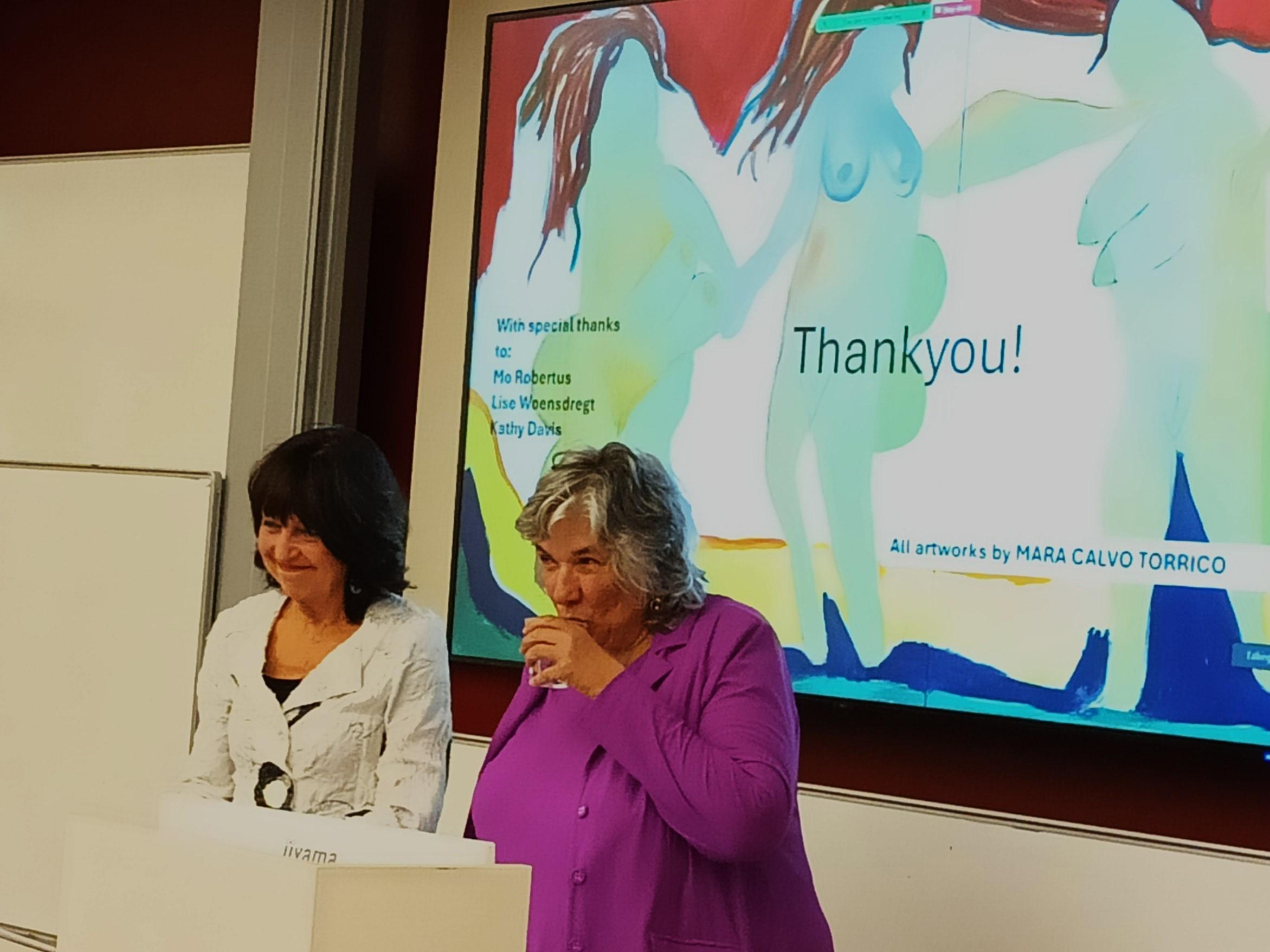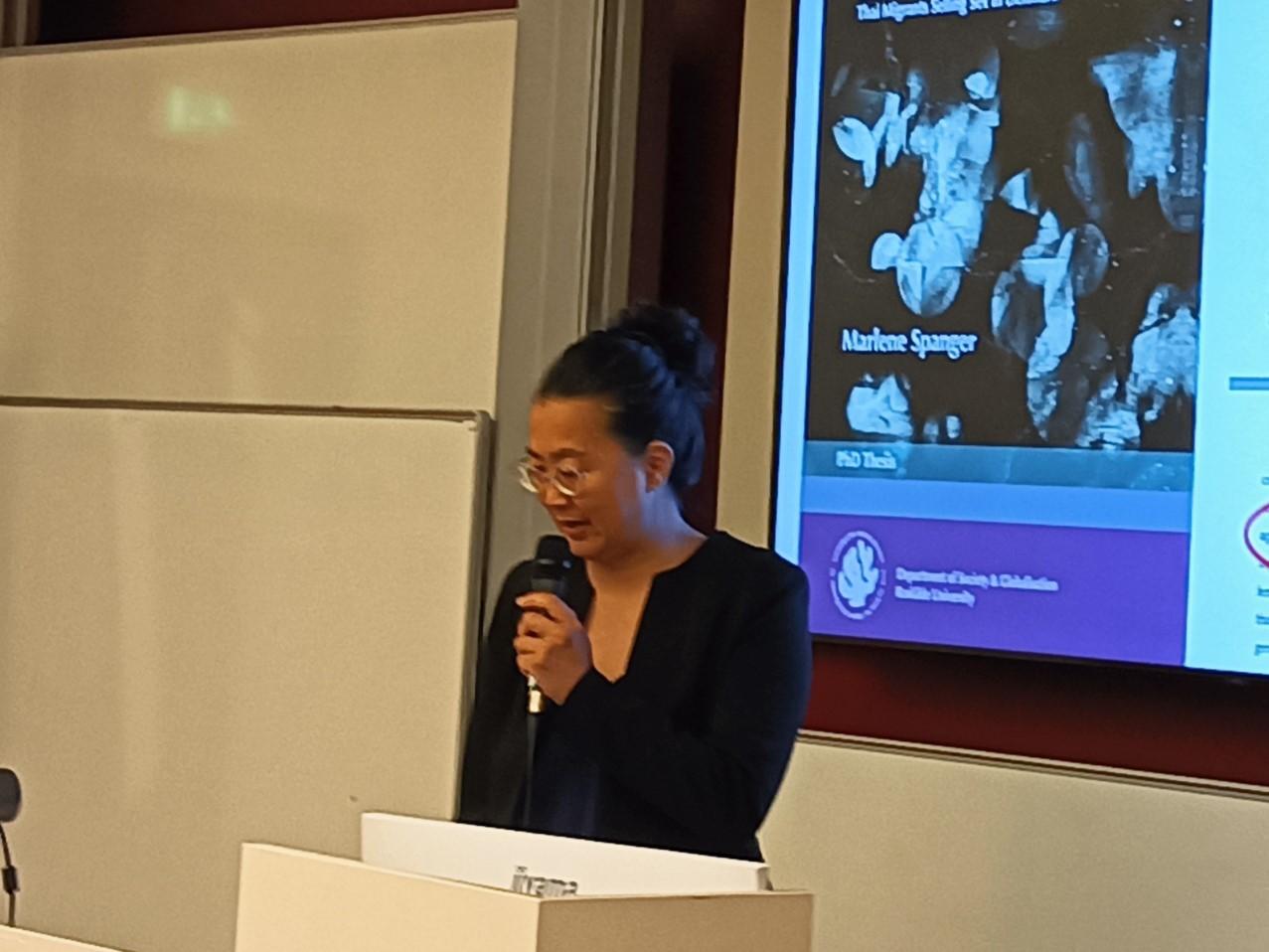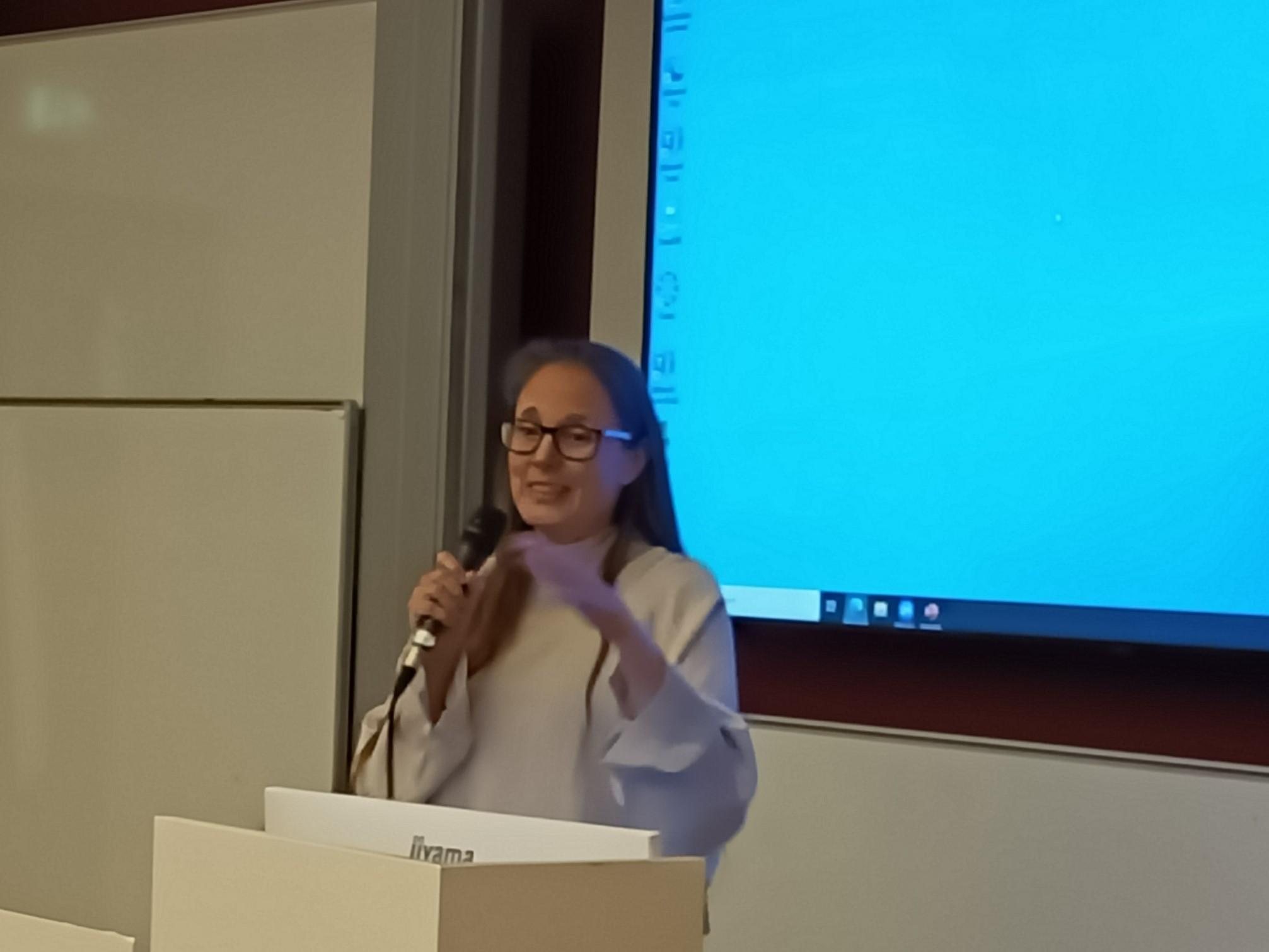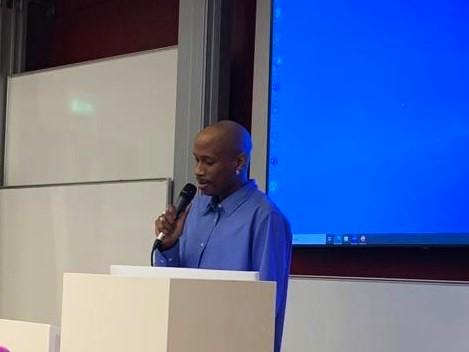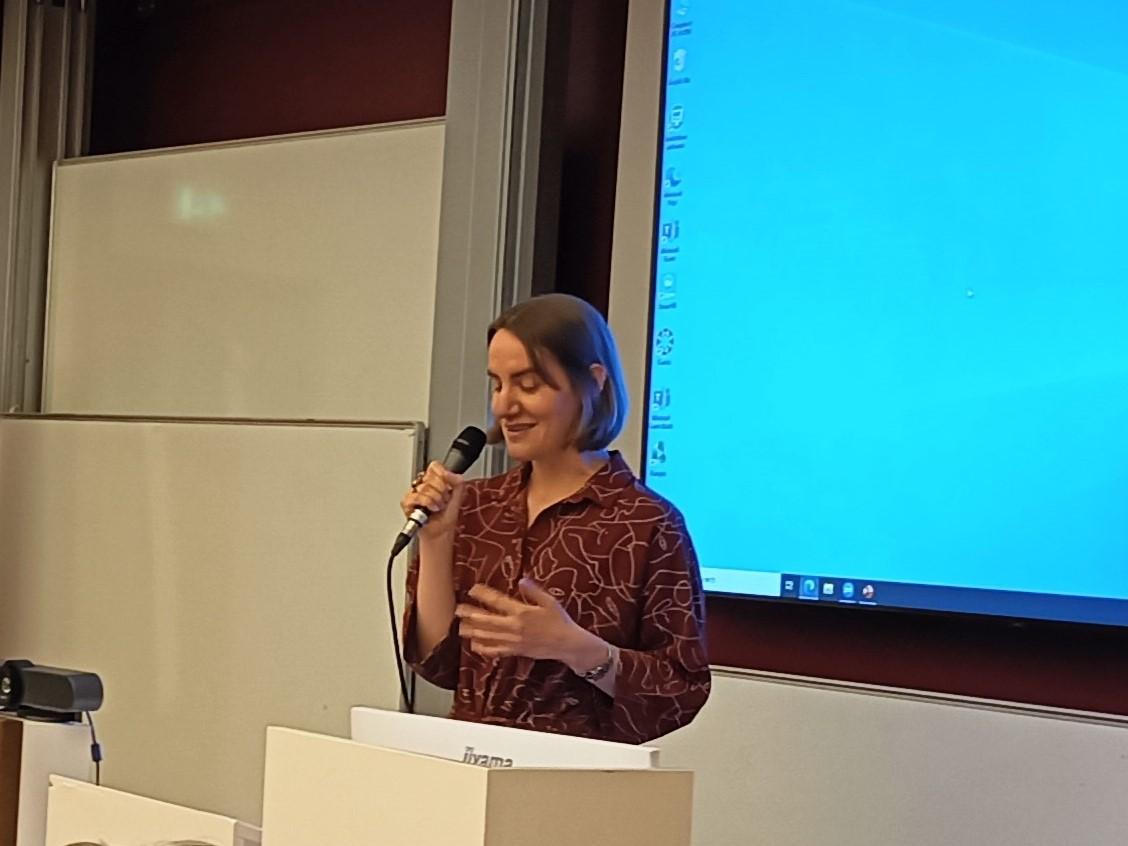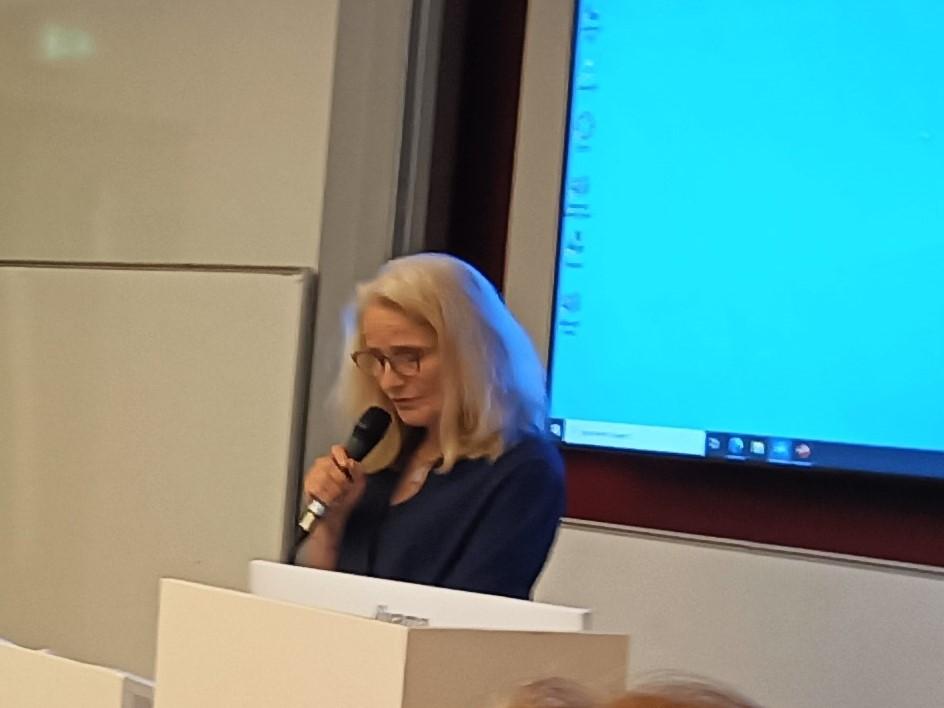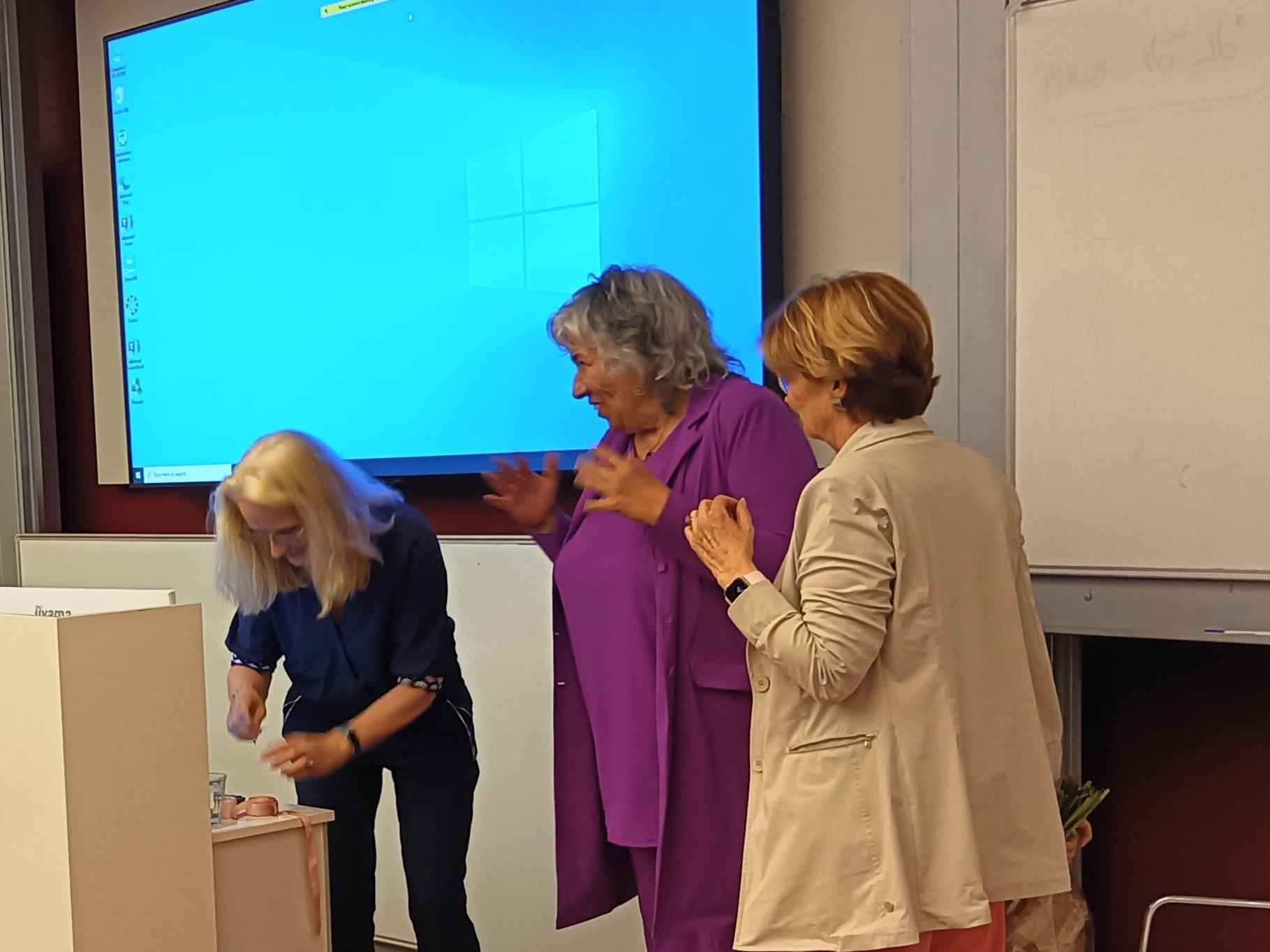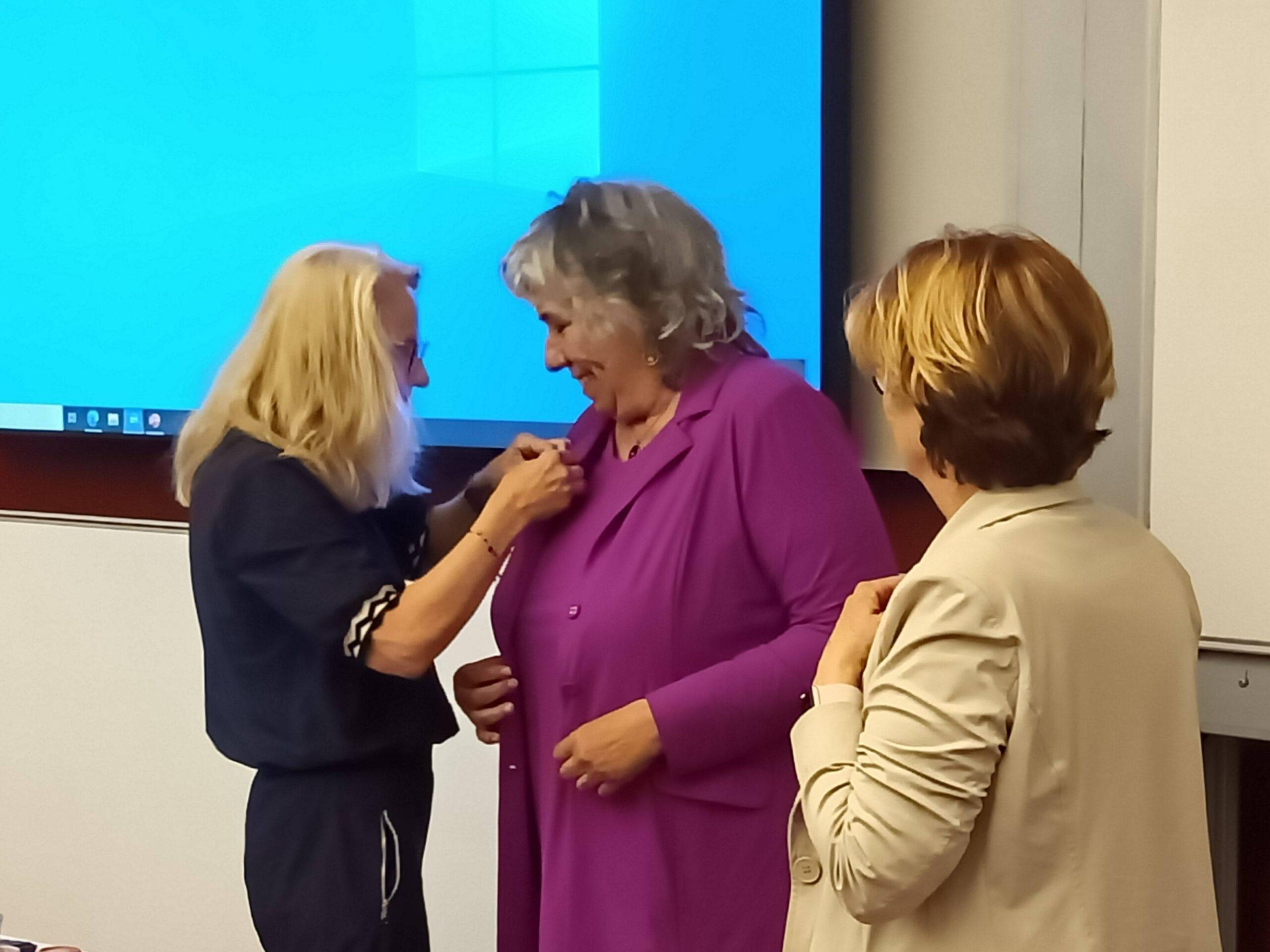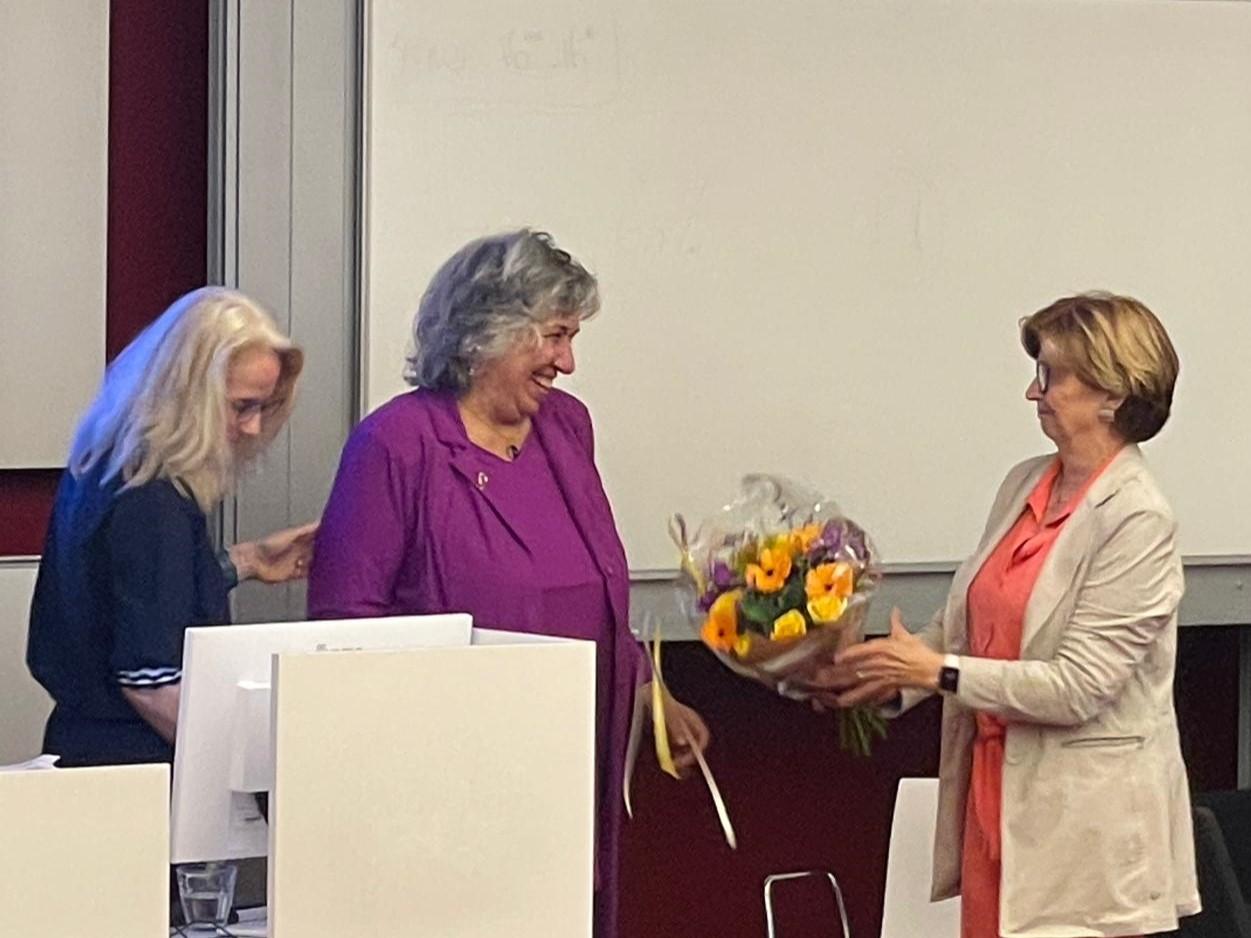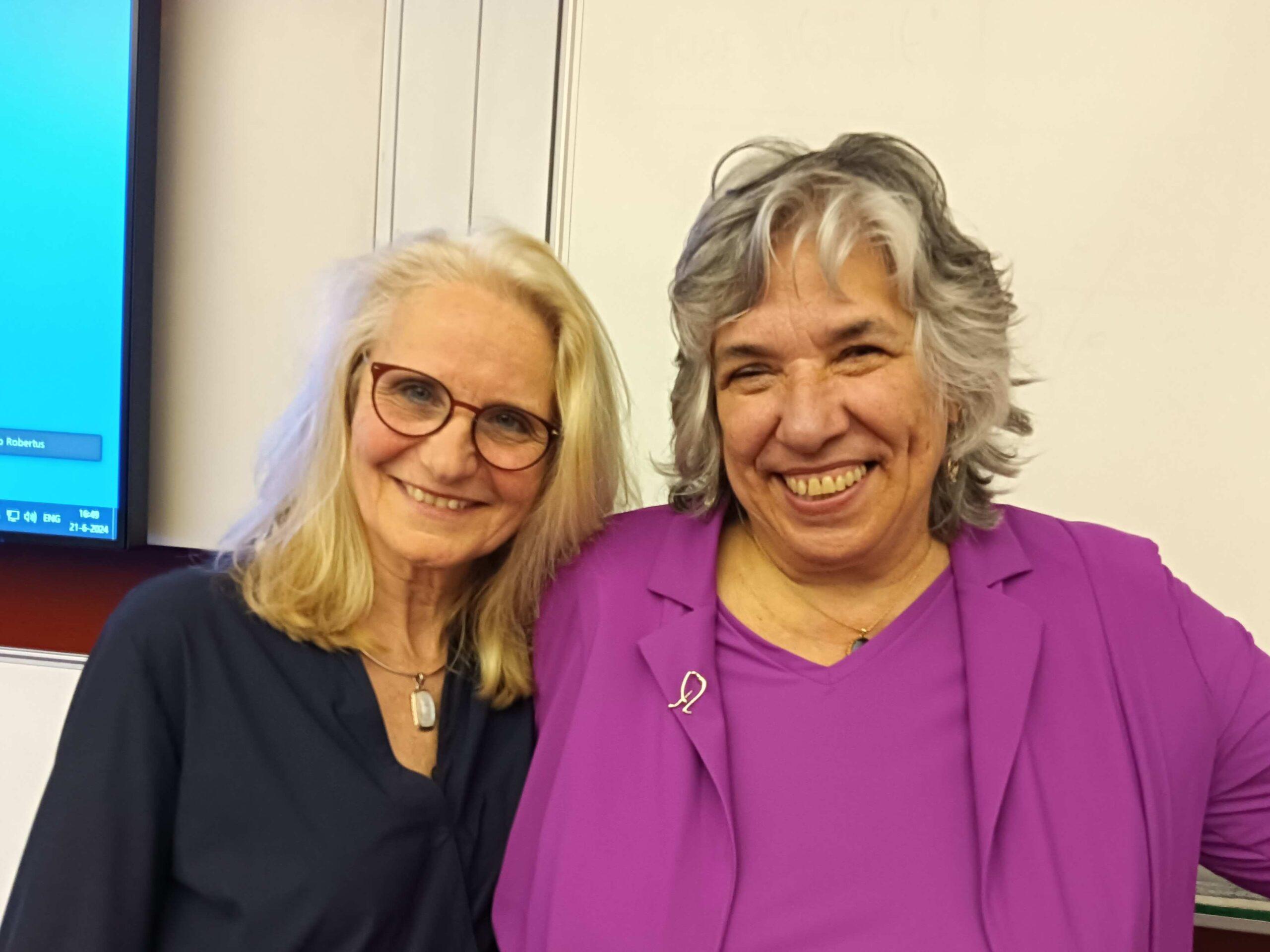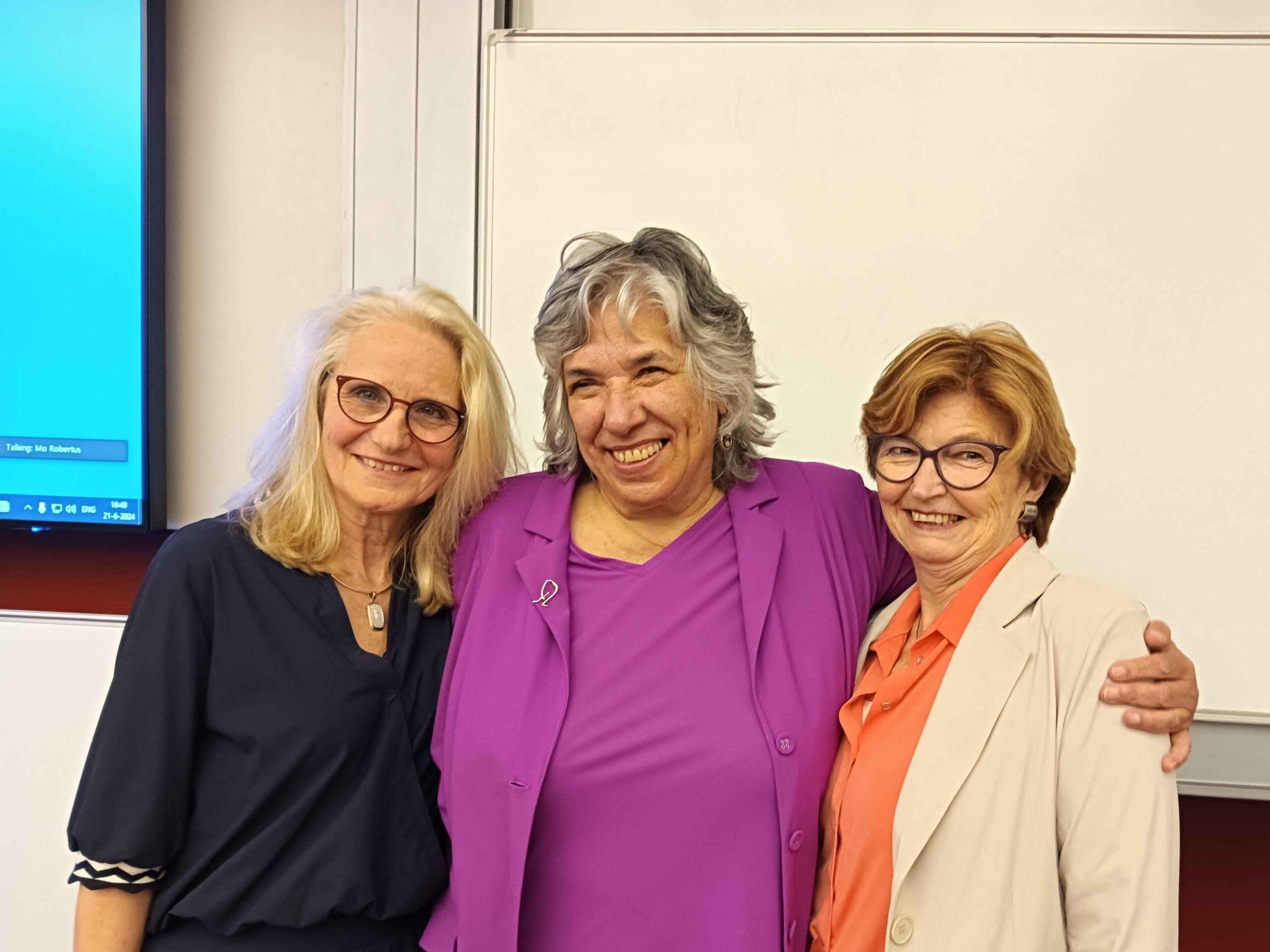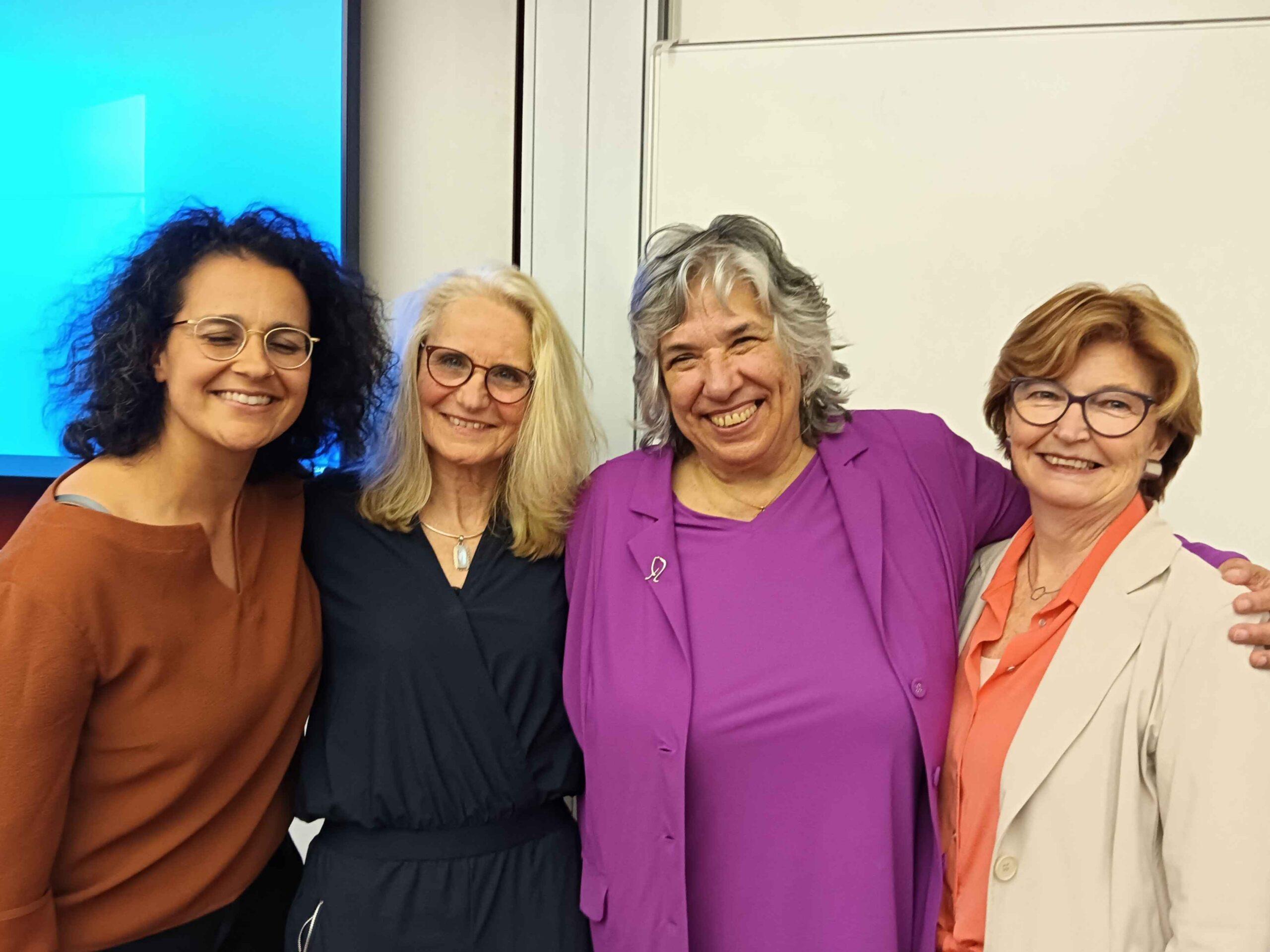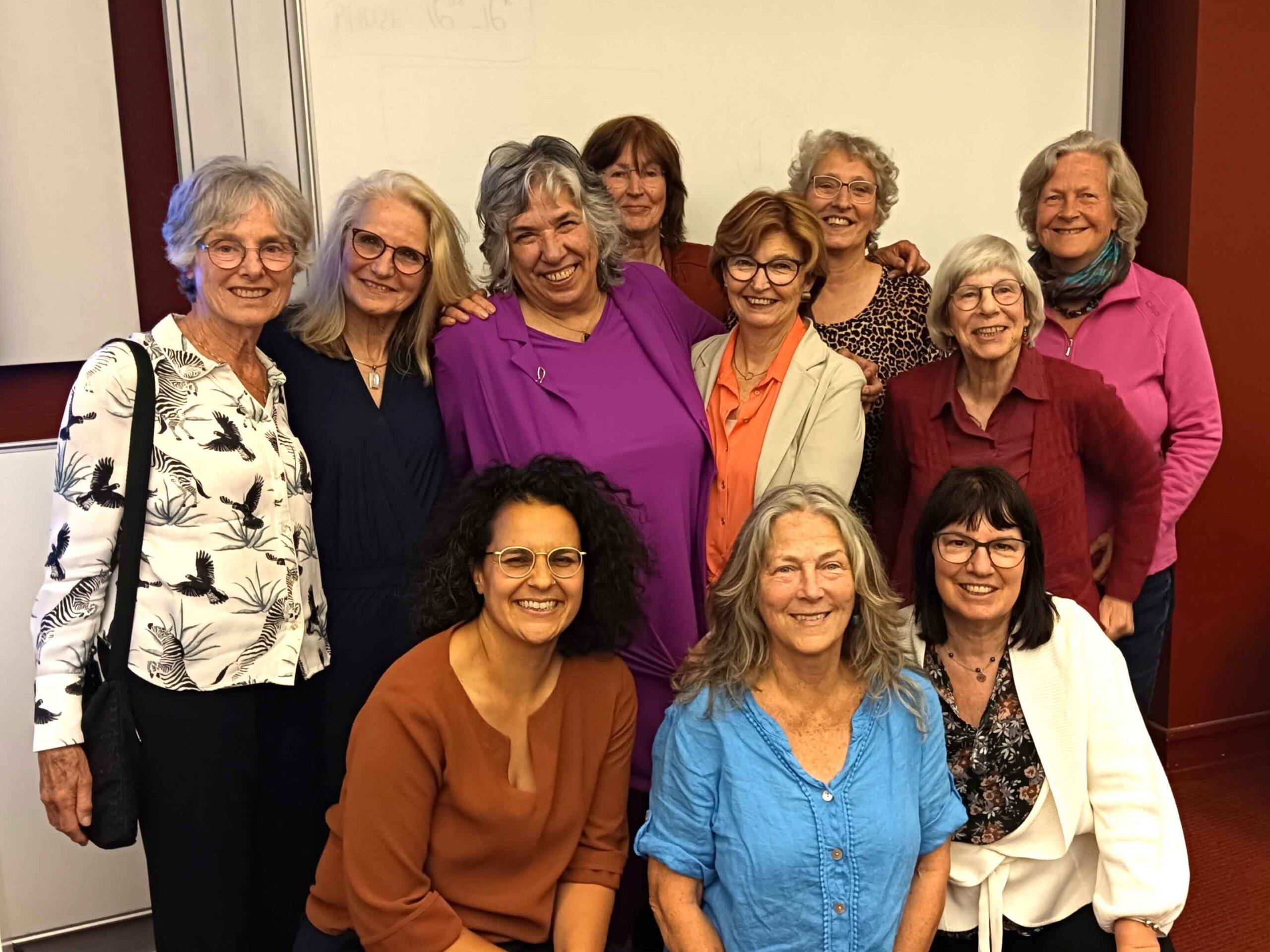On 21 June 2024 Lorraine Nencel was awarded the Honorary Membership of Lova because of her great contribution to feminist anthropology and gender studies. The event took place at the seminar for the retirement of Lorraine from the Sociology Department of the Faculty of Social Sciences at VU University Amsterdam. Lorraine was employed there since 2003, in the latter years as associate professor. Next to teaching she was involved in the research programme of Identities, Diversity and Inclusion.
Keynote by Lorraine Nencel
In the farewell seminar Lorraine presented a keynote speech titled Epistemological Conundrums: What I (un)learned doing research with sex workers over the last three decades. It was like a valedictory lecture and will be published in the next Lova Journal.
Lorraine opened her talk with explaining why she chose the topic of female sex workers in her research after her master’s project on women homewerkers in Lima, Peru. That was because of the remark by a Peruvian feminist about the large differences in arrangements for women-who-prostitute in Amsterdam and in Lima and in the opinions of supporting organisations. She thought that more knowledge would be needed about this. This led Lorraine to focus on the topic of women selling sex for an income and the debate about this. She hoped to support these women as they are so often invisible and considered as a problem. She was also fascinated by how women sex workers cope with apparently contradicting gender identies of mother and whore.
During her PhD research and in subsequent projects Lorraine did a lot of critical thinking on feminist epistemology and methodology. Some issues she shared in her keynote. Her first point was that feminist epistemological principles proved not to be that fixed and stable as she thought in the beginning. She elaborated on this extensively in her PhD thesis of 1997, published as Ethnography and Prostitution in Peru (Pluto Press, 2001) and translated into Spanish for a feminist publisher in Peru, as well as in various later publications.
Lorraine also shared that doing research on sex workers was and is a hard job. After the PhD project she wanted to step back from the fierce oppositional perspectives in which women sex workers are considered as victims or as free empowered women. She could do so because of a research grant for a project on women working as secretaries in the public sector in Peru. Only in 2012 she returned to the field of sex work research by getting involved in various research projects. Lorraine stated that she was then an experienced researcher and with more awareness of her own positionality in the projects. Still, a lot of difficult issues remained such as: how to handle the large variety in the contexts, ideas, and opinions among sex workers and among the supporting organisations; how to prevent stereotyping of sex workers; how to work with research participants who are not willing to participate.
Lorraine concluded that epistemological conundrums will continue to exist because of the importance of recognizing the large variety and flexibility in interests, values, and perspectives of all participants in research projects. A “dialogical politics of solidarity” (a quote from Yuval Davis 2024) is much needed.
Panel of five speakers
After the break five colleagues of Lorraine Nencel reflected on their relation with her in their career: Marlene Spanger from the Department of Politics and Society at Aalborg University, Denmark; Sally Hendriks from SOA AIDS Nederland; Helenard Louw and Lize Woensdregt, both from the Sociology Department of VU University Amsterdam. The fifth speaker was Tine Davids from the Department of Anthropology and Development Studies of Radboud University Nijmegen and also member of the Lova board.
Lova Honorary Membership Award
In her speech Tine Davids not only talked about her personal academic relation with Lorraine but also elaborated upon Lorraine’s important contribution to feminist anthropology in the Netherlands and beyond, which had led the Lova board to award her the Honorary Membership. Tine mentioned Lorraine’s early start in academic publishing by referring to the book Constructing Knowledge: Authority and Critique in Social Science edited by Nencel and Pels (Sage, 1991) about critical anthropology. She also referred to a speech of Lorraine in 2004 on a Lova Study Day, celebrating its 25th anniversary, in which she discussed the unpopularity of feminism and feminists in the Netherlands of those days. Lorraine thought of using the term ‘genderist’ as an alternative for feminist but concluded that feminism and feminist anthropology are still very much needed, also in the Netherlands. “The time has proved you right” Tine stated. How women experience power and powerlessness was and is a central topic in Lorraine’s academic career. Researching the interconnectedness of agency and structure and the reverberance of gender are central in all of her research projects. Her work contributes to and makes visible the multiplicity of positions, voices, and silences of women.
At the end of her speech Tine brought up Lorraine’s many other contributions like supervising eleven PhD candidates, most on sex work; advising Mama Cash; the Gender and Development List Service; and her work for Lova. In cooperation with Marina de Regt Lorraine had initiated the Lova Marjan Rens Master’s Thesis Award in 2003 and was member of the Lova board up to 2007 for helping organising this biennial award.
At the end of her speech Tine attached a brooch with the (old) Lova logo on Lorraine’s blouse. Then all Lova members in the room came forward for singing the so called Lova song ‘To be a woman’ of Judy Small. As no rehearsal had been done, this part of the meeting ended in great laughter.
Get an impression in the gallery of pictures below.
